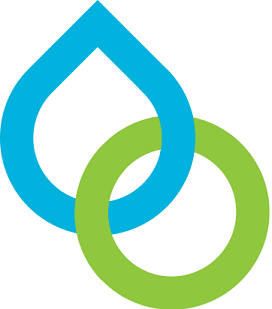Let's make 2018 a year of action in defence of our most precious resource - WATER.
Water is under threat and facing abuse from all sides: from giant corporations stealing groundwater to bottle and sell it for profit to unsustainable fishing practices that are destroying the balance of life under the waves to excessive plastic waste choking our oceans. Here are 12 actions you can take - one for every month of the year if you like! - in defence of water.
1) Donate to Ecologos/Water Docs’ year-end fundraising campaign to help us educate more Ontario citizens and students about issues affecting water via Water Docs-Where-You-Live and Water Docs @ School Action Projects.
2) Talk to your neighbours and friends about water issues and maybe even organize a Water Docs Where-You-Live film screening for your community to raise awareness for water and inspire others to take action.
3) Write to Premier Kathleen Wynne and remind her that Nestlé is still taking ground water at its Aberfoyle plant and wells on a permit that expired over a year ago.
From Wellington Water Watchers: "On Monday November 27th, Nestlé will pump the one billionth litre of water since the permit for the Aberfoyle well expired last year on July 31st, 2016. This translates to Nestlé producing hundreds of millions of single use 500 ml plastic bottles in just over a year, the vast majority of which wind up in landfill or as litter. This is in addition to the billions of litres of water Nestlé has pumped from the Aberfoyle and Hillsburgh wells in the last ten years. All of this - extracting precious groundwater, selling it for private profit and spoiling the earth and oceans with plastic - has to stop! Even worse, Nestlé wants to expand this environmental catastrophe with a proposal to take water from the Middlebrook well in the Township of Centre Wellington."
4) Boycott Nestlé and all of its subsidiaries. Seriously, just don't buy any of it. In addition, take a pledge to stop buying bottled water.
5) Make sure your local politicians at all levels share your concerns and make absolutely sure you are voting for someone that can help make a difference with water policy changes at all levels of government. Campaign to ban single-use plastic items too because our politicians need a push in the right direction.
6) Cut back on and eliminate your consumption of single-use plastics. Create your very own plastic-free/zero waste kit to get started!
7) Take a pledge to stop using single-use plastic straws by joining the global “#StopSucking” movement. Here's a handy guide to get you started.
8) Tell your own personal story and concerns by writing to the editors of newspapers. If your letter is printed, this will garner the attention of not only other readers, but also (and often) politicos and “movers and shakers” (celebrities, etc.) who have a wider influence with the general public.
9) Help your kids and grandkids understand the importance of respecting and protecting water for themselves, our fellow creatures and for future generations coming to the planet through education as well as by example. Teach your children well. Here are two children's books from local Toronto organizations you can use as tools and inspiration:
Nurdle the Turtle from A Greener Future
Canada's Great Water Adventure from Waterlution
10) If you own your home, consider Xeriscaping and natural landscaping with native and drought-tolerant plants to help conserve water. You can also practice water conservation on a daily basis with these 100 + ways to conserve water.
11) Reduce the amount of seafood you are consuming. Overfishing and unsustainable fishing practices are threatening the balance of life in waterways around the world. If and when you do buy seafood, ensure you are getting it from a sustainable source. There is a long list of Marine Stewardship Council (MSC) and Aquaculture Stewardship Council (ASC)-certified seafood available across Canada. Take a look at MSC’s product finder to see what’s available across the country.
12) Consider becoming a monthly supporter of Ecologos/Water Docs to help us make our water eduction programs financially sustainable, building a solid foundation of support.






